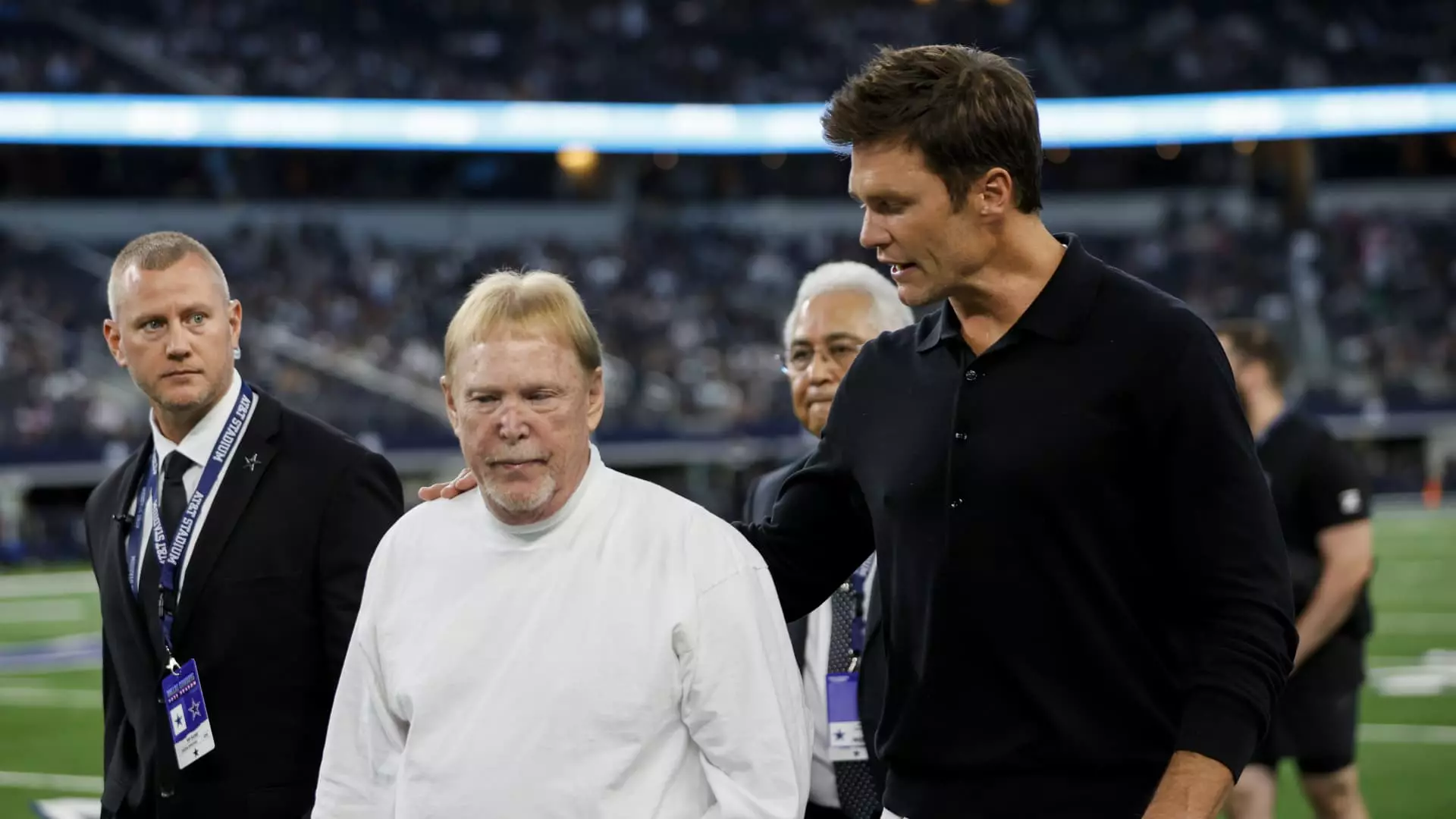The National Football League (NFL) has welcomed its newest minority owner: seven-time Super Bowl champion Tom Brady. The decision, made during a league meeting in Atlanta, signifies a significant moment not just for Brady, but also for the Las Vegas Raiders franchise. By acquiring approximately a 10% stake valued at $3.5 billion, Brady and his business partner, Tom Wagner, who is the founder of Knighthead Capital, are making waves in an already dynamic and evolving sports landscape.
Analyzing the Financial Dynamics of the Deal
The financial implications of this sale are noteworthy. Brady and Wagner are required to invest around $220 million in equity, a substantial amount by any measure. The stipulation of a 10% “flip tax,” which is to be distributed among the 31 other NFL team owners, adds a layer of complexity to their financial commitments. This move not only underscores the barriers to entry in NFL ownership but also highlights the lucrative nature of franchises in a league that increasingly commands inflated valuations.
A comparison with the NFL’s broader valuation landscape reveals a stark picture. While the Raiders are valued at $3.5 billion, CNBC’s Official 2024 NFL Team Valuations place them as the fifth-most valuable franchise at a staggering $7.8 billion. This suggests that Brady and Wagner managed to acquire their stake at a price significantly lower than the league average for a limited partner, which generally sees discounts of 20% to 25%.
The Raiders’ financial trajectory has undergone a remarkable transformation following their relocation from Oakland to Las Vegas in 2020. This shift not only revitalized the franchise’s image but also bolstered its revenue streams. In 2023, the Raiders generated $780 million in revenue, ranking them third in the NFL. Such a drastic increase can be attributed to several factors, including the highly popular Allegiant Stadium, which, despite being one of the smallest in the league, commands some of the highest ticket prices.
With the average general ticket price hitting $169, demand remains robust. Moreover, the stadium’s versatility as a venue for non-NFL events—ranging from concerts to college football games—has further solidified its financial success, bringing in over $50 million in additional revenue in 2023 alone.
Brady’s foray into ownership represents more than just a business investment. His statement reflects a strong desire to contribute to the Raiders’ legacy, emphasizing a commitment to enhancing the fan experience and aiming for victory on the field. This passion for the franchise is palpable and suggests that he will be an active voice, despite the restrictions associated with his ownership.
Interestingly, Brady’s connection to the Las Vegas sports scene runs deeper than this recent acquisition. As a minority owner of the WNBA’s Las Vegas Aces, also owned by Mark Davis, Brady’s influence in the local sports domain is gradually growing. His dual stakes potentially position him as a central figure within the Las Vegas sports market, bridging connections between different athletic communities and tapping into cross-promotional opportunities.
The Regulatory and Operational Hurdles Ahead
However, Brady’s new role as a minority owner isn’t without its challenges. The NFL imposes various restrictions on owners, especially those who also engage in media broadcasting. While he is permitted to broadcast Raiders games, he will not have access to in-person or online production meetings. This means Brady must navigate a delicate balance between his broadcasting responsibilities with Fox Sports and his obligations as a team owner.
Such constraints highlight the complicated nature of ownership within professional sports, where affiliations in media can lead to conflicts of interest. The league’s stringent policies against public criticism, particularly concerning game officials and rival teams, will also come into play as Brady carves out his identity as an owner, showcasing that there’s more to NFL ownership than simply financial investment.
Tom Brady’s acquisition of a minority stake in the Las Vegas Raiders marks a historic milestone not just for him, but for the NFL as a whole. It illustrates a shift in ownership dynamics, showcasing how former athletes are increasingly seeking stakes in franchises. As Brady steps into this new chapter, his dual identity as a prominent former player and now team owner will undoubtedly shape the future of the Las Vegas Raiders, a team that has already experienced substantial growth and popularity in its new hometown. This partnership promises to bring fresh perspectives and strategies, with the hope of propelling the Raiders to new heights while also enriching the fan experience.

